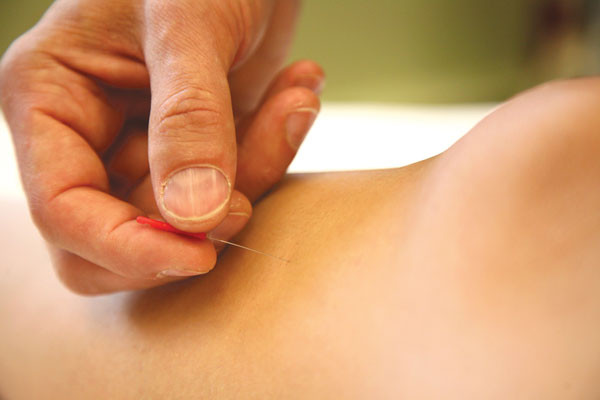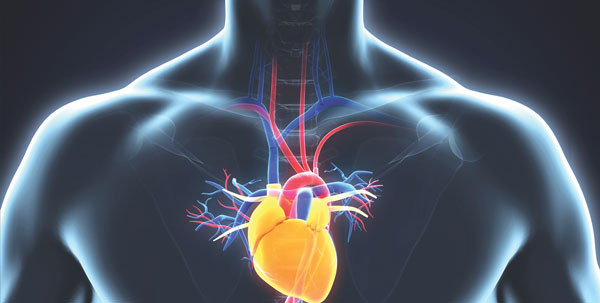
Respiratory health harms often follow flooding: Taking these steps can help

Tips to leverage neuroplasticity to maintain cognitive fitness as you age

Can white noise really help you sleep better?

Celiac disease: Exploring four myths

What is prostatitis and how is it treated?

What is Cushing syndrome?

Exercises to relieve joint pain

Think your child has ADHD? What your pediatrician can do

Foam roller: Could you benefit from this massage tool?

Stepping up activity if winter slowed you down
Diseases & Conditions Archive
Articles
Benefits of moderate sun exposure
Dr. Robert S. Stern, chair of the Department of Dermatology at Harvard-affiliated Beth Israel Deaconess Medical Center , calls them "solar-phobes": people so concerned about getting skin cancer that they stay inside or cover every bit of skin. "They cover up like they were going out into the Arabian Desert ," he says. The marketing of ultrablocking sunscreens and special sun-protective clothing plays into these fears.
There's no getting around the fact that sunlight is hard on your skin. Age gets blamed for wrinkles and rough, dry skin. But the real culprit is a combination of age and sun that dermatologists call photoaging. The short UVB wavelengths that cause sunburn can also damage DNA and suppress the skin's immune system. The longer, more penetrating UVA wavelengths may create highly reactive oxygen molecules capable of damaging skin cell membranes and the DNA inside.
The secret to an easier allergy season
Fighting back against tiny allergens before they strike can help you avoid or reduce symptoms.
Image: iStock
The spring allergy season begins next month, and if you want to avoid symptoms, you must act now. "Pretreating allergies will lead to better control of symptoms, and maybe prevent symptoms from showing up," says Dr. Ahmad Sedaghat, an ear, nose, and throat specialist at Harvard-affiliated Massachusetts Eye and Ear Infirmary.
Automatic defenses
When spring allergens—typically pollen from oak, elm, birch, poplar, or maple trees, depending on where you live—float through the air and reach the nose, the body sometimes overreacts. Mast cells in the lining of the nose mistake the harmless tree particles for dangerous invaders, and summon help by releasing chemicals such as histamine and tryptase, which then recruit more immune system cells to the battle.
Afib stroke prevention: Go set a Watchman?
Most people with atrial fibrillation take anti-clotting drugs to prevent strokes. For those who cannot take these drugs because of a high risk of bleeding, a tiny, basket-like device implanted in the part of the heart that traps clots may be an alternative.
Don’t tolerate food intolerance
Here's what to do when certain foods disagree with you.
Image: ChesiireCat/Thinkstock
You probably remember an occasion when you ate something that did not agree with you. But if your stomach issues have become severe and frequent, you might have a food intolerance.
"Food intolerances puzzle many older men, since foods they long enjoyed suddenly give them problems," says Evagelia Georgakilas, a registered dietitian and nutritionist with Harvard-affiliated Beth Israel Deaconess Medical Center. "They might tough it out and suffer in silence, but by identifying the problem foods, making adjustments in portion sizes, and switching out certain foods as needed, they can avoid painful and recurring digestive issues."
Boning up on osteoporosis
The disease strikes more women, but men are also at risk.
Osteoporosis is often considered a woman's disease, but men also need to be concerned about this bone-weakening condition. About 2 million men have osteoporosis and another 12 million are at high risk, according to the National Osteoporosis Foundation.
In fact, older men have a greater risk for an osteoporosis-related fracture than for getting prostate cancer, and about one in four men older than 50 will break a bone because of osteoporosis during his lifetime.
What are the best ways to treat plantar warts?
Salicylic acid, a prescription-strength medicine, and cryotherapy with liquid nitrogen are common treatments for plantar warts. However, if these do not work, consult with a dermatologist or podiatrist about other options like other injected and topical drugs or laser therapy.
Modern acupuncture linked to constipation relief
It appears that electroacupuncture may be a treatment option for people with chronic severe functional constipation.
What is a lacunar stroke?
Lacunar strokes, which account for about one-fifth of all strokes, occur in small arteries deep within the brain. Although these strokes may not cause symptoms, those that do may cause weakness in the face, arm, or leg on one side of the body.
Bringing awareness to aneurysms in the chest
Most often, bulges in the aorta near the heart are found by accident. Should you be screened for this rare yet dangerous condition?
Image: Nerthuz /Thinkstock
The aorta, the body's largest blood vessel, arises from the heart's left pumping chamber, then curves up and over the heart in a gentle arc. In some people, a weak spot in the aorta's wall causes the vessel to bulge outward like a worn-out bicycle tire. Called a thoracic aneurysm, this stealthy condition develops slowly and silently, rarely causing symptoms. And while some thoracic aneurysms are relatively harmless, others cause catastrophic problems. An estimated one in 10,000 people has a thoracic aneurysm, although the exact prevalence is unknown.
"Most thoracic aneurysms are discovered on an imaging test done for some other reason," explains Dr. Eric Isselbacher, associate professor of medicine at Harvard Medical School and co-director of the Thoracic Aortic Center at Massachusetts General Hospital. For example, an aneurysm might be visible on an echocardiogram (heart ultrasound) done during testing for an irregular heartbeat. Because the condition is so uncommon, testing everyone for a thoracic aneurysm doesn't make sense. But certain people face a higher risk than others (see "Who needs to be checked?").

Respiratory health harms often follow flooding: Taking these steps can help

Tips to leverage neuroplasticity to maintain cognitive fitness as you age

Can white noise really help you sleep better?

Celiac disease: Exploring four myths

What is prostatitis and how is it treated?

What is Cushing syndrome?

Exercises to relieve joint pain

Think your child has ADHD? What your pediatrician can do

Foam roller: Could you benefit from this massage tool?

Stepping up activity if winter slowed you down
Free Healthbeat Signup
Get the latest in health news delivered to your inbox!
Sign Up









